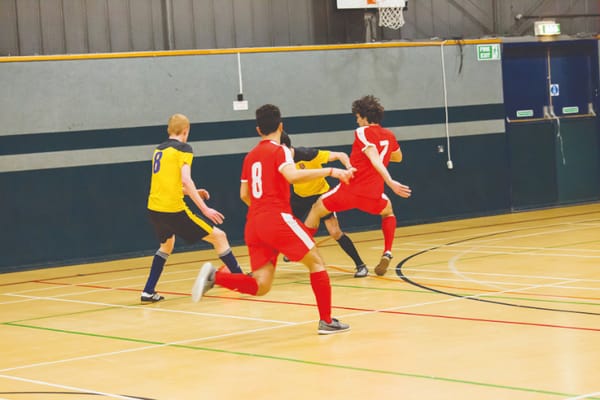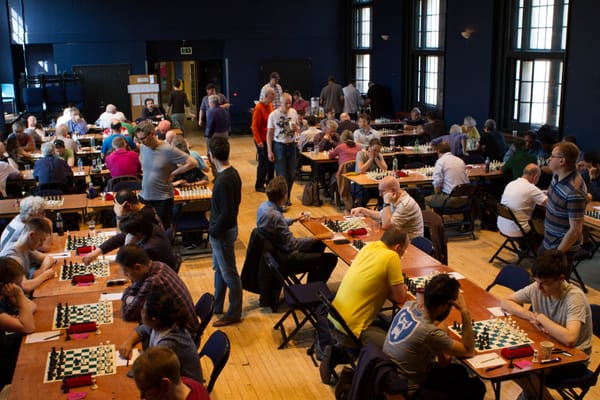WTF is Ultimate Frisbee?
Felix sport’s guide to the flying disc toting, epic catch making, self-officiating American sport.

Ultimate Frisbee, also known by cool kids as just ‘Ultimate’, is a relatively new sport, having only been developed in the late 1960s by a few students in New Jersey. Since its inception, the sport has exploded in popularity; from flinging cookie tin lids in a play-ground to being recognized by International Olympic Committee in less than 60 years! With that in mind, I got in contact with Imperial’s very own club, the disc Doctors (dD), to find out what the hype was about.
I arrived a little early and gradually met the team as they trickled in, gathering around a tree close to the old Hyde Park football fields. It was late February, and a stiff cold breeze blew, but it didn’t seem to affect the others, who were bright eyed and bushy tailed. There was a very friendly atmosphere, with teammates feeling comfortable in one-another’s presence; what I sensed was a team that were close-knit and at the tail end of the season. Although I was a newbie I felt very much welcomed and I was not treated as an outsider.
Warm ups consisted of throwing the frisbee a moderate distance to one another, while a veteran player took me under his wing to show me the ropes. I must admit that going into the session I assumed that I would be good at throwing, being of moderate arm strength and possessing enough coordination for most sports. What I forgot to factor in is that those sports used balls not frisbees, and I slowly realized that with frisbees there must be a more delicate touch. Instead of a ball that is propelled and hindered by the air, a well-thrown frisbee glides on it. The trajectory of the frisbee is very sensitive to release, wrist action, and angle than any ball. Once you see an Ultimate veteran throw a frisbee you acquire a respect for the skill needed; it’s nothing like how you throw them on a warm summer’s day at the beach.
“It’s nothing like how you throw a frisbee on a warm summer’s day at the beach”
During the warm ups I was taught the two most basic throws: backhand and forehand throws. Backhand is the one you – the reader – are probably most familiar with: it’s like back hand slapping the air with the frisbee, whilst the forehand is like slicing precisely, with a lot of flick of the wrist, as you throw. I was also taught what I’d like to call the crocodile technique for catching the frisbee. Once thrown to me I slapped my hands over the frisbee sandwiching it like the jaws of a crocodile (there must be an actual name for that technique). Feeling more confident and with more players arriving we moved onto a drill.
The drill consisted of a few passes and then a long pass down field to someone who was running. With my newly acquired confidence the initial passes were alright, but on the longer pass I messed up. Then the next time I messed up again, and again, and again. The captain noticed what I was doing, having played American football for such a long time I was not throwing the frisbee level, and when throwing a high powered long pass; as a result, the slightest failure in technique was amplified. I tried to correct the long pass technique, but to no avail; with more practice I think I eventually would’ve got it.
“The X factor of Ultimate is the ethos attached to the sport – the spirit of the game”
For the final part of the session we played a match. Instead of the usual seven-a-side which is standard, we played five-a-side due to lack of players. It is at that point I came to grips with the basics of the sport. Ultimate feels to me like an amalgamation of many sports. The aim of the game is to get someone to catch the frisbee in the end zone, which has similarities to American Football. You can’t run when you’re in possession of the frisbee and you must throw it within a specific time frame – that’s like netball. I say it’s an amalgamation, but it’s got a little extra and feels a lot different when actually playing it.
Yes, it involves the oddly shaped frisbee, but that isn’t the X factor. What I would consider the X factor is the ethos attached to the game. This may seem outlandish but through my time with the club there seemed to be a nurturing of what is coined the ‘spirit of the game’. In Ultimate there are no external referees – it is self-officiating, with that a silent pledge to respect each other, adhere to the rules, and to play fundamentally for the joy of the game. There weren’t any sour feelings when someone scored, only appreciation. I was coached on the field too, and my teammates tried to put me in a position to score to ensure I enjoyed my time. There was an understanding to enjoy the game, with healthy competition too.
The club is doing very well, with a tour at the beginning of each academic year; different tiers; 1st, 2nd, and 3rd teams; indoor and outdoor teams; mixed, men and ladies teams; and a social scene too. They compete on a national stage, with many of the players playing outside of the club in the best non-University teams in the UK. Training sessions are usually Wednesdays and Saturdays, with games on Sundays. In the first term, players can get a true taste of Ultimate, with tournaments catered for beginners. Further into the season the club competes in national competitions and the club have done very well in the past. If you are interested in swinging and spinning some discs get in touch at: ultimate@imperial.ac.uk








